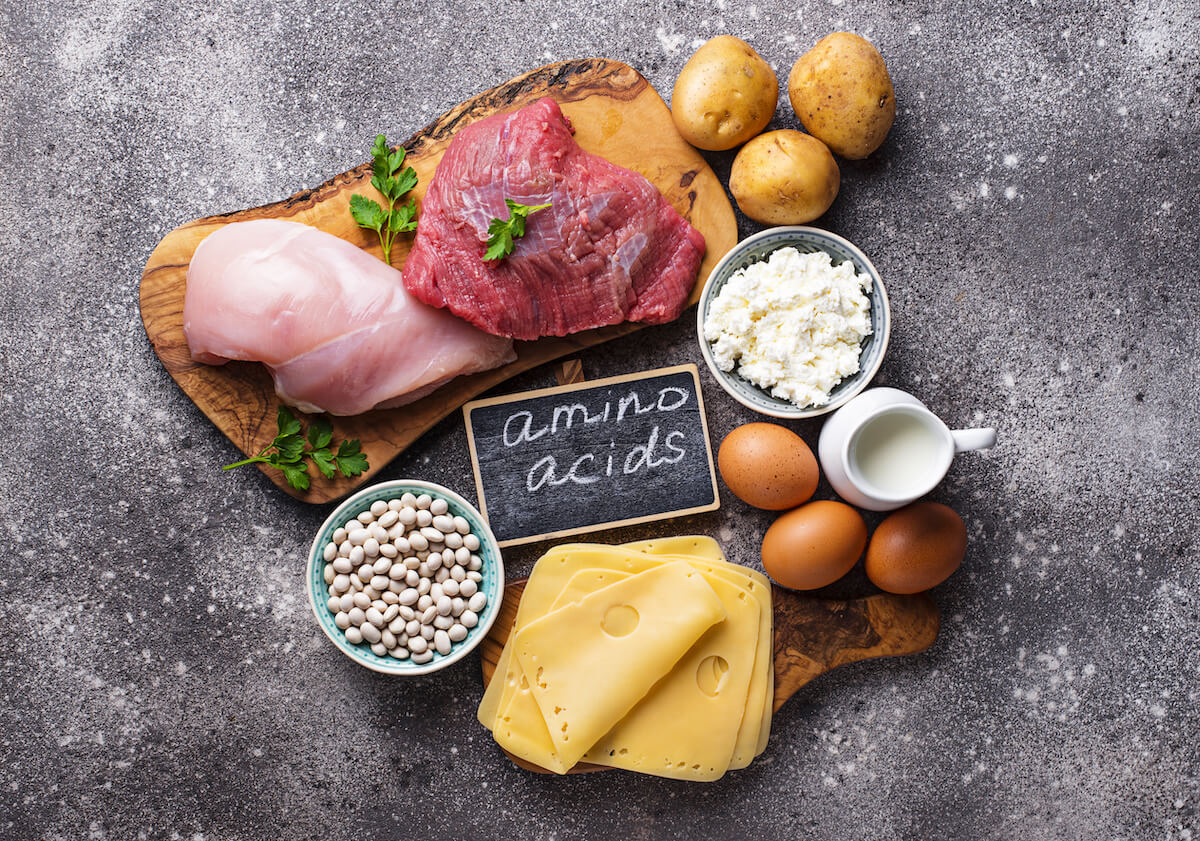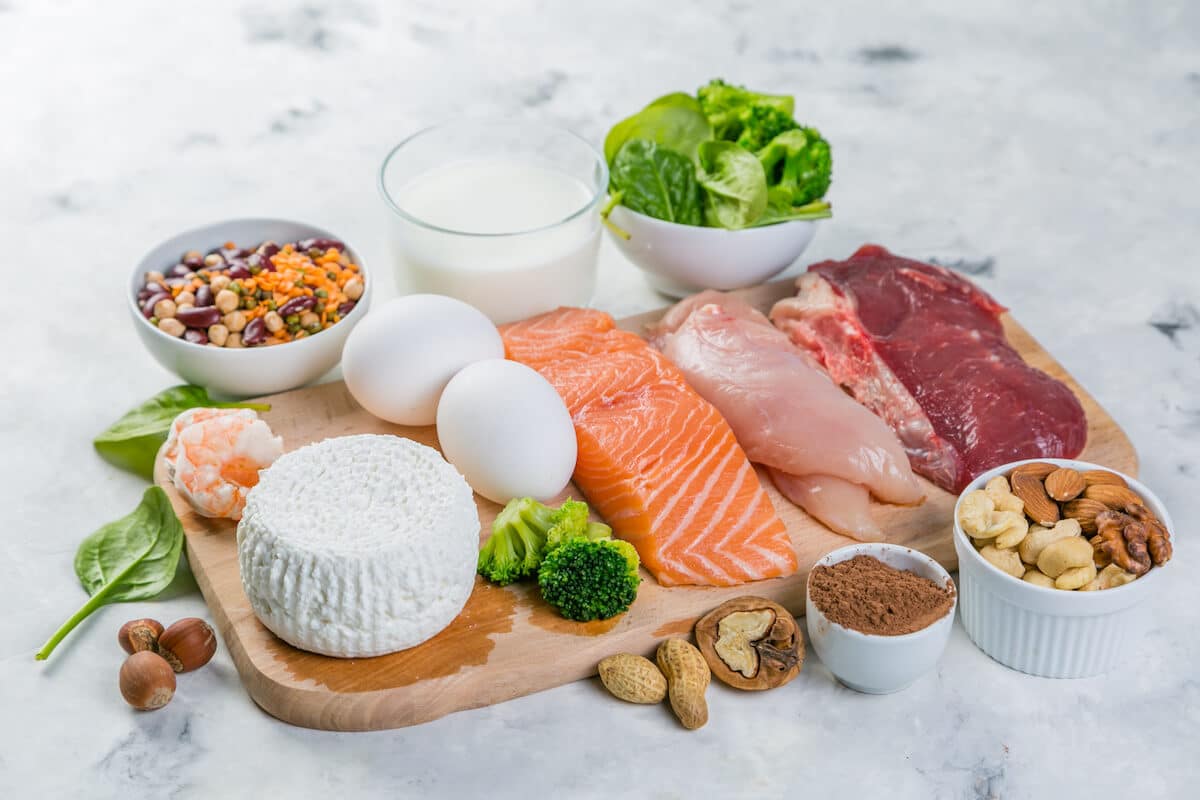
16 Dec How to Choose the Best Protein for Seniors: Tips and Insight
When you think of protein intake and supplements, you might picture bodybuilders, athletes, and young, fit people. But everybody needs protein, regardless of your fitness level or age. And if you’re an older adult, you might need more protein in your diet than you realize.
Because it’s essential for older people to maintain a healthy body weight and combat loss of muscle, protein intake is crucial. Protein can help you maintain your overall health and muscle strength as you age, and if you’re not eating enough of it, your health will suffer.
In this guide, we’ll outline how much protein your body needs as an older adult, what type of protein is best, and why. Then we’ll help you find the best protein for seniors looking to increase protein consumption to improve their health.
How Much Protein Do Elderly People Need?

Your nutritional needs change along with your body as you age. For example, as an older adult, you may require a lower calorie intake, but you still need to get enough carbohydrates, fats, protein, and other nutrients. And some older adults require more protein and may be prescribed a high-protein diet by their doctor or nutritional specialist.
Older adults may digest protein more slowly and less efficiently, which is one reason why a high-protein diet can offer benefits. Eating more protein can make up for the body’s lack of responsiveness to protein. And getting enough protein is even more critical if you’re recovering from surgery, battling an illness, or have been told by your medical provider that your body doesn’t digest protein well.
Unfortunately, the data on older people’s nutritional needs is lacking. And on top of that, it’s the subject of vigorous debate. However, we do know that low protein intake in elderly people correlates with sarcopenia, or the loss of muscle mass and lean muscle tissue.
It’s best to consult your doctor for their opinion about the best protein for seniors and how much you need to be eating for your personal health.
Best Protein Recommendations for Seniors
The current RDA (or recommended dietary allowance) for protein intake in elderly people is 0.8 grams of protein per kilogram of bodyweight. That’s 0.36 grams of protein per pound of bodyweight. While some nutrition experts agree with this, others believe that a safer recommended protein intake for older adults might be 1 to 1.25 grams of protein per kilogram of bodyweight. That’s 0.45 grams to 0.57 grams of protein per pound of bodyweight.
If you’re an older adult, it may be helpful to aim for as much as 30 grams of protein in each meal. Because while the best protein for seniors matters, it’s crucial to make sure you’re getting enough protein overall. In addition, this approach may help maintain muscle mass and function in older adults. However, the exact amount of protein you need is dependent on your weight, physical activity level, and current health.
We recommend speaking with your healthcare professional or a licensed nutritionist for specific recommendations on protein intake.
Quality Counts: Amino Acids and Bioavailability

When increasing or monitoring your protein intake, the type and quality matter. And that’s where we really get a look at the best protein for seniors. The quality of protein in your diet impacts digestion, absorption, and metabolic processes throughout your body.
Protein quality, in this case, refers to the digestibility of a given protein source. And the type of protein refers to its amino acid profile and whether it’s a complete protein.
While there’s more to learn about amino acids and protein quality, the two most important factors include whether it’s a complete protein and if it has high bioavailability.
About Essential Amino Acids and Complete Protein
When a food contains the nine amino acids that your body can’t produce, which are known as essential amino acids, it’s considered a “complete protein.” Conversely, foods that don’t contain all nine essential amino acids have “incomplete protein.” Because the vast majority of older adults don’t eat the recommended amounts of protein, you could say that the best protein for seniors is complete protein, which ensures a healthy amino acid profile.
Protein is always complete when derived from animal sources like beef, chicken, pork, fish, eggs, milk, cheese, yogurt, or butter. However, you can also find complete proteins in plant-based sources such as tofu, tempeh, and other soy products, as well as quinoa, buckwheat, and some other foods.
Understanding Protein Bioavailability
Protein bioavailability refers to the percentage of the digested amino acids that your body can absorb into your system. When a protein has high bioavailability, it’s easier for your body to absorb the amino acids into the bloodstream. From there, protein synthesis allows your body to use these amino acids to repair and maintain everything, including your organs, muscles, and tissues.
Because many elderly adults already struggle to digest and absorb protein, protein sources with high bioavailability are ideal. Generally, animal-based sources of protein like meat, dairy, and eggs have a higher bioavailability than plant-based sources of protein. And protein supplements like whey protein powder tend to have a higher bioavailability than animal-based food sources.
The Right Type of Protein for Seniors
Choosing the right type of protein primarily comes down to whether it has high bioavailability and if it’s a complete protein. However, the food source of protein also plays a role. An Ingredient Optimized study conducted on seniors showed that “no matter the age, the specific protein you choose even in a given category can make a huge difference in performance and wellness.”
As we noted earlier, high-quality protein shakes and supplements tend to offer the highest bioavailability. And since Ingredient Optimized products are developed with higher bioavailability in mind, they’re an excellent option. In addition, Ingredient Optimized products ensure that you’re getting as much protein from your protein supplements as possible.
The type of protein supplement matters, too. Specifically, whey protein isolate may be more beneficial for older adults than casein protein, even though they’re both a milk protein. This is because whey protein was shown to help older adults build muscle more efficiently than casein.
Best Protein for Seniors

While nutrition experts might not be able to agree on the exact amount of protein older adults need, it’s clear that eating enough protein is crucial, as is a balanced diet. While we can’t name a single “best protein for seniors,” we can offer you quality options to consider.
Unless recommended otherwise by a healthcare professional, a balance of protein-rich foods and protein supplements is ideal.
Protein-Rich Foods
Whole food sources of protein, carbs, fat, and other nutrients are always essential for a healthy diet. The following food sources offer complete protein to help you reach your daily protein intake goals:
- Beef, pork, chicken, and fish
- Dairy products (e.g., Greek yogurt, milk, cheese)
- Eggs
- Soy products like soy milk, tofu, and tempeh
When possible, look for foods high in calcium, vitamin D, iron, and antioxidants and low in cholesterol, sodium, and added sugars.
Protein Powder and Supplements
To determine the best protein powder for you, it’ll depend on your health, dietary needs, and doctor’s recommendation. Generally, though, you’ll want a product designed for high bioavailability and with a high enough protein content to help you reach your dietary goals.
For example, ioWhey Protein offers enhanced bioavailability in products like Kaged Muscle Clean Meal and Performix ioWhey Protein.
If you’re lactose intolerant or avoid eating animal products, a plant-based protein like ioPea Protein will better fit your needs. And while plant-based proteins often offer lower bioavailability, ioPea is designed for increased bioavailability and is shown to work as well as whey protein.
Make Sure You’re Getting Enough Protein
Protein is essential for protecting and supporting your health, especially as you age. And while the best protein for seniors varies, it’s clear that you need to make sure you’re getting enough of this nutrient in your diet.
Whether you’re seeing weight loss due to sarcopenia or you’re recovering from surgery, increasing your protein intake might help. We recommend consulting your healthcare provider or a nutrition expert for guidance on how much protein you need each day. Your healthcare professional can also help you pick the best protein supplement to help you reach your dietary goals.
If you’re looking for a protein drink, powder, or supplement, remember to focus on bioavailability. Ingredient Optimized protein supplements are designed for increased bioavailability and protein quality to best support your health.


